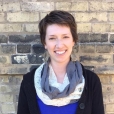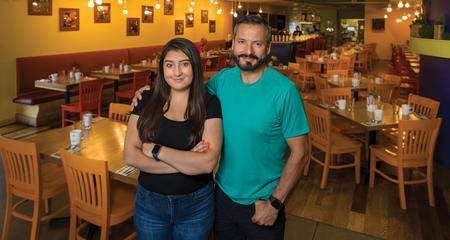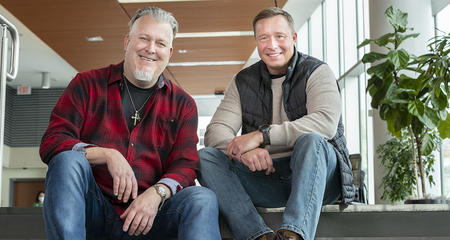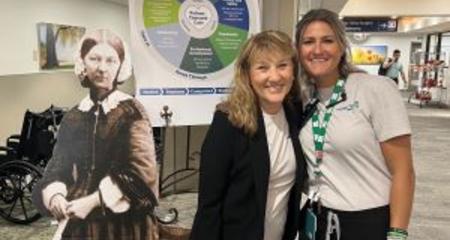You never know what you’ll find out about yourself when you put it down in writing; you can learn so much. You can say things you wouldn't dream of saying out loud. You can be frank with yourself in ways that you can't be with your husband, your mother, your best friend. You can tell the truth.
 You can create
You can create
some
space
on the page and in your mind.
When you write, you can detail all of the worst possible scenarios your overloaded brain can think up, the sky's the limit, and then you can reread them in order to realize that maybe most of what you're afraid of probably won't come true. You can write how you feel about that word: probably.
Write letters that you don't intend to send. Love letters, hate letters, letters of explanation, apology, invitation. Write unsendable letters to your children, your lover, your parents, your body parts. Write a good-bye letter to your breasts, lamenting how silicone will never be a sufficient replacement, but it's sure as hell better than getting cancer again. Maybe try writing a letter yourself. Tell your past self what you wish she'd known; or tell your future self what your hopes and dreams are for her. Tell both of them that they're beautiful.
Write about all the amazing things your husband did right, all the sweet things he said to you. Write down all the ways he just doesn't understand. You can write about how no one, NO ONE understands. Write down all of the ridiculous cancer clichés you're told, including the ones you tell yourself because they really do make you feel a little bit better. Copy down the words "This Too Shall Pass" on a clean notebook line and let it stand by itself. You can find it tomorrow and read it again and be reminded that nothing is forever.
You can write lists. Lists of questions for your doctors, lists of worries or fears, pros-and-cons, what-ifs, things that MUST be done today (but probably won't get done today), people you have to call, upcoming appointments. Make a list of foods that don't make you gag so your husband can pick them up at the grocery store on his way home from work. List all of the possible reasons why.
And when chemo brain comes knocking and you can't think straight, and the lines on the page start to bend, and sentence structure seems too hard to manage, just write down words. Words in handwriting that you probably won't even be able to make out later, sloppy words that seem to fit your fried frame of mind, like crushed, and falling, and failing, and how? and — and, expletives. You can write expletives, because dammit, sometimes that's the only thing that satisfies.
You can make sweeping declarations using your favorite absolutes, like "This is the WORST day of my life!" or "I will NEVER feel like myself again!" or "Why does EVERYTHING ALWAYS go wrong?" or, "My body is LITERALLY falling apart!"
Later, you can use the breast cancer awareness pen you got from a friend to scrawl bright pink ink over the notebook lines. In the curliest, fattest, most swirling cursive you can muster, you can sweep yourself up off the page with positive affirmations and a little bit of private cheerleading, like the fact that you actually can pull off that pixie haircut! You're still young, so what if your boobs betrayed you? They're gone, good riddance; think of all the strapless dresses in your future!
Try writing about the ominous, abstract concepts that are always in the back of your mind, like fear, regret, doubt, pain, and death. Or, if that seems too overwhelming, write about your concrete observations of doctor's faces and nurse's hands and hospital gowns, neon lights, the pattern of the clinic carpeting. Write about the saturated blue of the wall in your surgeon's office, the click of the camera pointed at your bare chest in all stages of deconstruction and reconstruction, the ache of surgical drains looping out of your body.
Write about the waiting. Oh, the waiting! Waiting for the phone call that will change your life, waiting for all the results of all the subsequent testing, waiting for this expert and that expert and this consultation and that one, for needle pokes and blood draws and for chemo. Waiting for today to be over so that tomorrow can come, so that maybe you're a little closer to feeling normal again. Waiting to feel normal again.
You can write the same thing as you wrote yesterday; why not? Woke up. Showered (or didn't shower). Tried to eat breakfast. Went back to bed. So what if you went back to bed after breakfast? Or spent six hours on the couch with the cat binge-watching Gilmore Girls episodes and eating nothing but chocolate, because that's the only thing that doesn't taste like you're chewing on metal. Maybe tomorrow will be different. Maybe not. It's like that movie Groundhog Day, and you're perpetually going through the same motions until the universe decides you finally got it right and all of a sudden one morning you wake up to realize that you're you again, and tomorrow finally came.
Tomorrow will come.
There will be a time when you will flip back to your words, in awe of the fog through which you wrote; in awe of yourself and the pace at which things change.
You can go back to what you'd written a month ago or two, or five. Maybe it will seem like you wrote it yesterday, or maybe it will seem like last year. When you write, you can find patterns in thinking, patterns in coping, patterns in your tears. You can find a little bit of light in the strangest of places, in the darkest of moments. You can uncover some of your inner strengths, discover a little bit of beauty in crisis. Look for the art within your words; start to see how certain syllables sound satisfying when you read them out loud. You can paint a picture with language.
You have a story worth telling.
If you don't write it down, who will?
Share Your Thoughts
How have you expressed yourself since your cancer diagnosis? Have you told your story? Share your comments below.



